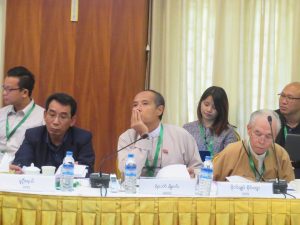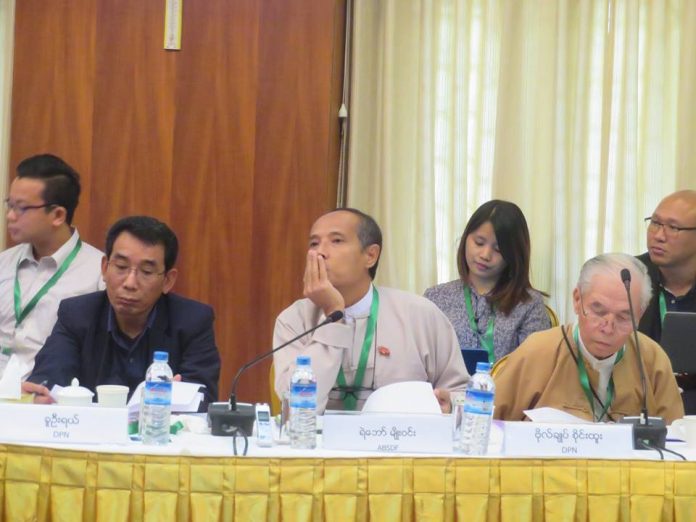Since only ethnic armed groups that inked nationwide ceasefire agreement (NCA) are allowed to lead the national level political discourses, problems will surely arise for those leading the talks in the states or regions where ethnic armed groups have not signed the NCA yet, according to Khun Oo Reh, leader of United Nationalities Federal Council (UNFC)’s Delegation for Political Negotiation (DPN).
The NCA-signatory groups leaders can take the lead in national level talks and hold events in their respective regions and states in order to discuss various areas of concern whether it’s about their nationality or otherwise. The non-NCA signatory groups, however, are not yet allowed to do so.
“Therefore, to talk about this, most are our groups that are working for peace, and in some states, political parties, do not get involved in the peace process enough. So, it will be difficult for them to lead the discourse events,” said Khun Oo Reh, on Thursday, October 20.

“Political parties can lead the political talks, and there are also civil society organizations from respective ethnic groups. However, it does not allow the groups’ leaders to lead the talks in regions or states where ethnic armed groups did not sign the NCA. Therefore, it will be a problem for the people there to hold the discourse events and discuss respective topics,” said Khun Oo Reh.
Chapter 4, Paragraph 4 of the NCA’s political talk framework stated that as instructed by the Union Peace Dialogue Joint Committee (UPDJC), the national level political talks could be held by individual groups of government, ethnic armed groups and civil society organizations or a combination of them, throughout the states and regions.
Last month, UPDJC held a meeting, wherein they analyzed the framework of whether the non-NCA signatories could hold the national level political talks, and if so, that decision would be made by the UPDJC, according to a member of UPDJC.
The meeting focusing on political discourse framework review occurred from October 18 to 20, in order to be able to hold national level political talks smoothly in the states or regions of non- NCA signatory groups. Representatives of the DPN were also present at the meeting.
Representatives of the DPN included members from Kachin Independence Organization (KIO), Karenni National Progressive Party (KNPP), New Mon State Party (NMSP), Shan State Progress Party, Arakanese National Council, Wa National Organization, Lahu Democratic Union.
Union Peace Conference – 21 Century Panglong was held for the first time from August 31 to September 3. It was planned that a second Union Peace Conference would be held six months later. In the lead up to the second conference, national level political talks will be held in respective states and regions, according to NCA text.

